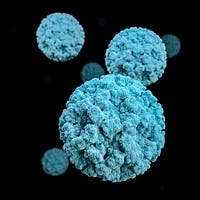It’s an ugly disease, and you don’t want it. It’s also highly contagious, and it’s spreading. It’s very easy to catch norovirus from infected patients, food, water and surfaces. From the CDC:
Norovirus is the leading cause of outbreaks from contaminated food in the United States. About 50% of all outbreaks of food-related illness are caused by norovirus. Most of these outbreaks occur in food service settings like restaurants. Infected food workers are frequently the source of outbreaks in food-service settings, often by touching ready-to-eat foods (such as raw fruits and vegetables) with their bare hands before serving them. However, any food served raw or handled after being cooked can get contaminated with norovirus.
Besides restaurants, it also spreads A LOT in shared locations like cruise ships, schools, childcare centers and healthcare facilities. If one person is infected in a household, it’s a lot of work to prevent it from spreading within that household, so it’s best to avoid it if at all possible.
Norovirus is NOT directly airborne, but there are reasons to wear masks anyway. First, there ARE a lot of airborne viruses spreading concurrently, and N95 masks are good for preventing them. But also, norovirus enters your body predominantly through your mouth, although potentially through your nose, too. Therefore, if you touch something, and then touch your mouth, you’ll be infected. Norovirus can live on surfaces for up to two weeks, depending on the type of surfaces. Even seemingly innocuous surfaces, like playing cards.
Dr. Schaffner recalled a case in Tennessee in which a member of a bridge club became sick with norovirus and vomited in the parking lot. Everyone else at the table then became infected. He said that public health investigators later found norovirus on the playing cards. Source.
Make sure to wash your hands properly1 as often as possible using soap and warm water. Because norovirus lacks a lipid layer, antibacterial hand sanitizer has no effect.
You likely touch your face all the time. You are probably unaware of this. Here’s a simple exercise: cut an onion in half, and rub all your fingers on the cut onion. See how long it takes to smell the onion from your fingers, or taste the onion, or burn your eyes (hopefully you’ll avoid this outcome).
After the onion exercise, think about all the surfaces you touch: doorknobs, light switches, counters, office machines, you get the idea. Then go wash your hands. Again.
Again2, avoiding touching your face is helpful. If you must touch your face, make sure your hands are clean.
Next, food. If you eat raw foods, like fruits and vegetables, make sure they are adequately washed. If you eat seafood - cook your oysters and avoid, for now, ceviche. Make sure all food is cooked to the proper (safe) temperature. If you eat prepared foods, such as those from a restaurant, remember that an infected worker can infect the food whether or not it’s cooked. Sadly, most restaurant workers don’t have sick days, and they don’t get paid (or can lose their jobs) if they stay home when sick.
You can avoid eating out until the rate of norovirus decreases. But if you are going to eat out, you might want to check out the food inspection reports. These are mostly gathered by state. For example, here’s the Pennsylvania site.
If you DO get norovirus, you’ll probably feel like death-warmed-over for a few days and then recover. If, however, you are elderly, immunocompromised, or a very young child, you could end up in the hospital.
If you are infected: stay home, and stay away from everyone else in your house. You can take over the counter anti-diarrheal medication, as well as Pepto-Bismol, or another anti-nausea medication. Make sure to stay as hydrated as possible - dehydration is one of the things that lands patients in the ER for norovirus.
Make sure to wash everything. For hard surfaces, use a bleach solution. You can also use Lysol, but spray, say, a light switch, let it dry, spray again — make sure to use the Lysol spray 4 times per surface. (You probably don’t want to bleach light switches.)
Make sure to wash all bedding and clothing in hot water, with an extra rinse, and dry on the highest temperature. If norovirus is in your house and you normally wash with cold water, remember that killing norovirus is more important than being environmentally conscious.
Stay healthy!
If you have little kids, this video is the handwashing song.
Yeah, I’m a broken record on handwashing. A dear friend worked for the CDC and pointed out back in the 80’s that if all Americans washed their hands properly 10 times a day, the rate of non-venereal communicable diseases in the country would decrease by 97% in 30 days.




Any idea when it may peak?
How does norovirus seem different than encounters with bacteria e. coli or salmonella in the sick feeling?